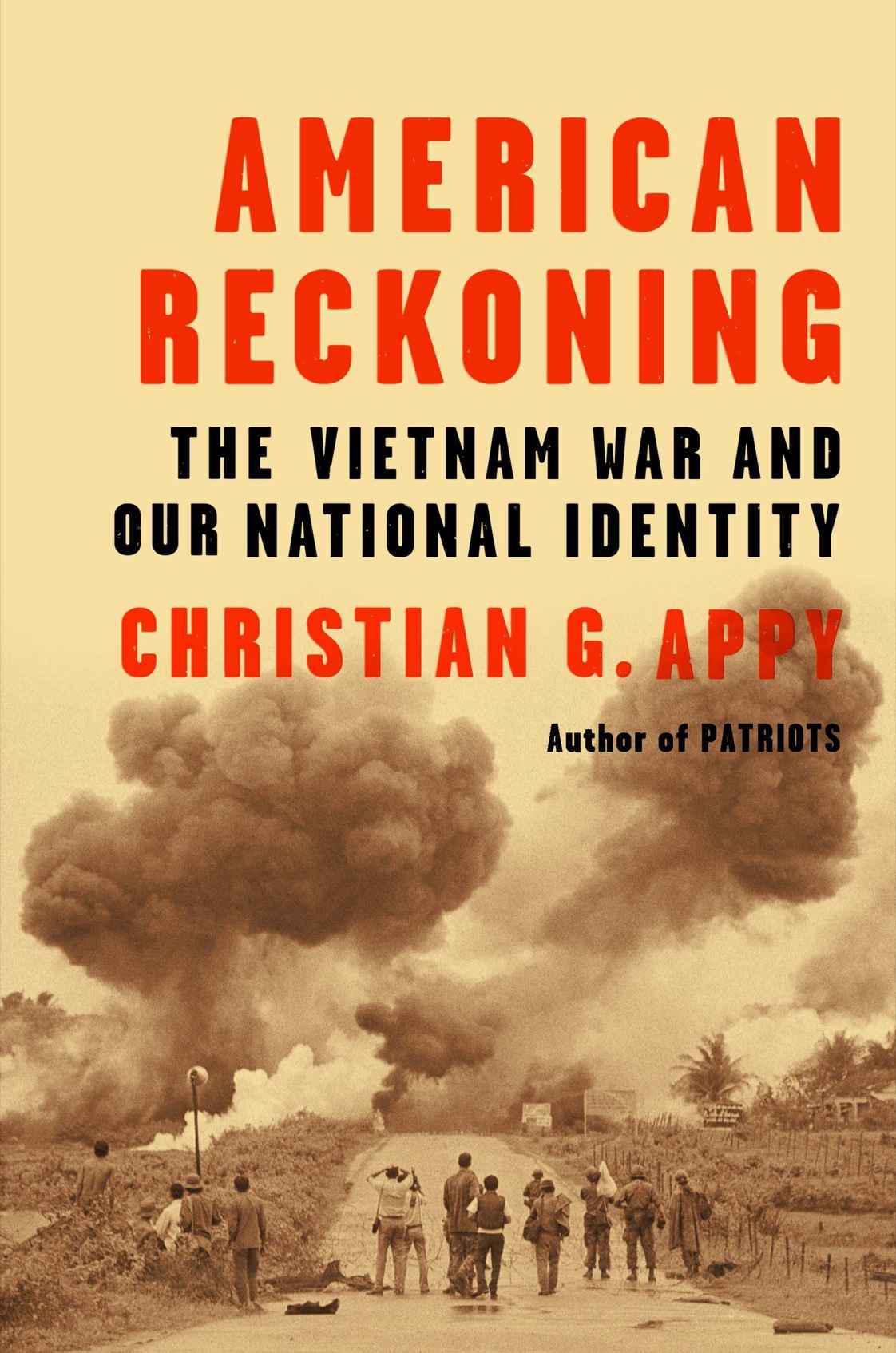
American Reckoning
The Vietnam War and Our National Identity
فرمت کتاب
ebook
تاریخ انتشار
2015
Lexile Score
1220
Reading Level
9-12
نویسنده
Christian G. Appyشابک
9780698191556
کتاب های مرتبط
- اطلاعات
- نقد و بررسی
- دیدگاه کاربران
نقد و بررسی

December 22, 2014
Appy (Patriots), a University of Massachusetts historian who specializes in the Vietnam War, offers his assessment of that conflict’s multifaceted legacy in the United States. In a wide-ranging, insightful book-length essay, Appy writes confidently and convincingly to support his main theory: that the way the war was fought and its outcome put an indelible dent in the idea of American exceptionalism. The war, he argues, “shattered the central tenet of American national identity—the broad faith that the United States is a unique force for good in the world, superior not only in its military and economic power, but in the quality of its government and institutions, the character and morality of its people, and its way of life.” Appy examines how the U.S. fought the war and interprets the main cultural and political events since the war’s end through the lens of its failure. He scrutinizes and interprets political machinations, as well as reportage, literature, film, and television. Appy successfully conveys the shameful, difficult, and traumatic homecoming given to the nation’s 2.8 million Vietnam veterans in a book that poses a distinct challenge to those who still believe in American exceptionalism.

November 15, 2014
Analyzing public, political and cultural responses to the Vietnam War, Appy (History/Univ. of Massachusetts; Patriots: The Vietnam War Remembered from All Sides, 2003, etc.) argues that the protracted conflict "shattered the central tenet of American national identity-the broad faith that the United States is a unique force for good in the world."Although he does not prove that belief in "American exceptionalism" was shattered, the author makes a strong case that the war continues to affect national identity. As the war raged, many soldiers became disillusioned and demoralized by the futility of their mission; at home, a fiery peace movement burgeoned into other areas of social protest, generating widespread "debates and disunity." After the war, the fall of South Vietnam and the Khmer Rouge's victory in Cambodia generated concerns about American culpability for the volatile political situation in Southeast Asia. Nevertheless, President Gerald Ford, rather than call for "a great national reckoning of U.S. responsibility in Vietnam, called for a 'great national reconciliation, ' " which the author characterizes as a call for "a willful amnesia." In the 1980s, protest over Ronald Reagan's Central American policies seems to Appy evidence of "a broad public skepticism about military intervention" that, some feared, might result in another Vietnam. Nevertheless, writes the author, despite "all the heated rhetoric about the Vietnam syndrome, it never produced a drastic military downsizing or demobilization." What it did produce was intolerance for more protracted wars with high American casualties. That intolerance, though, ended on 9/11. As the author admits, government leaders still unabashedly proclaim that U.S. power is justified "because it would be used only as a force for good." For generations who know the Vietnam War largely through movies and fiction, this well-informed and impassioned book is an antidote to forgetting and an appeal to reassess America's place in the world.
COPYRIGHT(2014) Kirkus Reviews, ALL RIGHTS RESERVED.

January 1, 2015
Almost 40 years and two generations have passed since our humiliating departure from Vietnam. What enduring lessons have we learned after the costs inflicted upon ourselves and the Vietnamese? Not enough, according to this brutally frank and disturbing analysis of the war and its lasting impact on our sense of national identity. Appy tracks the evolution of public perceptions of the conflict. The war was seen originally as a small operation to assist a friendly people fighting a vicious Communist insurgency, but Americans saw it degenerate into a massive, costly conflict with carnage viewed daily on the evening news. The war damaged our sense of exceptionalism, but, according to Appy, the underlying assumptions that drove the policy were never considered and debated openly. Now, perhaps driven by the shock of 9/11, we again seem to see ourselves as the essential nation in opposing global jihadism, leading to our involvement in both major and minor wars in Asia and Africa. Appy paints with a broad brush and may interpret our national security needs too narrowly. Still, his assertion that our current policies could guarantee constant warfare deserves to be seriously considered.(Reprinted with permission of Booklist, copyright 2015, American Library Association.)

September 15, 2014
A professor of history at the University of Massachusetts, Amherst, Appy is noted for two big books on the Vietnam War, Patriots: The Vietnam War Remembered from All Sides, an oral history, and Working-Class War: American Combat Soldiers and Vietnam. Both were highly recommended by LJ. This current book, an in-house favorite at Viking, isn't a history of the war but of its impact on America's identity, policies, and popular culture, drawing on a blend of materials from song and film to fiction and official documents.
Copyright 2014 Library Journal, LLC Used with permission.

























دیدگاه کاربران